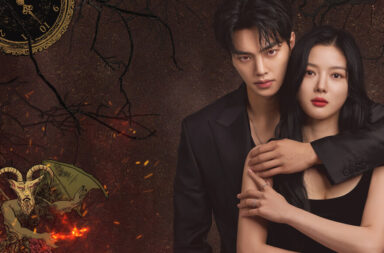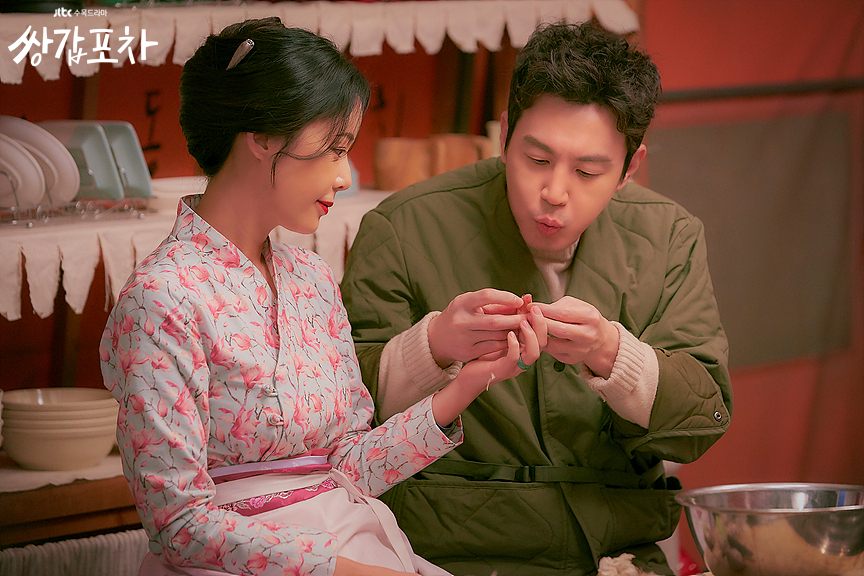
While it took off to a shaky start, JTBC‘s healing fantasy drama Mystic Pop-up Bar found its footing after the first four episodes. Abrupt transitions between genres still turned up now and then, but the show began to weave tighter links between the episodic stories and the broader narrative. Unfortunately, it wavered once again in the penultimate episode, and the unconvincing finale brought back the show’s earlier issues.
Having addressed the world-building and slightly-too-idealistic resolutions to some customers’ stories in the review for episodes 1-6, Karen and Qing now take a step back to discuss the hits and misses of Mystic‘s overall plot development and character arcs, and lament the epic nosedive of a final episode.
This review contains spoilers.
Qing: After the disappointing first fortnight, I didn’t have much hope that Mystic would get better, but to our surprise, episodes 5-6 were more coherent tonally, choosing a slice of life approach to the episodic stories and the overarching plotline bringing Kang-bae (Yook Sungjae) and Yeo-rin (Jung Da-eun) together.
By the mid-point of the series, viewers have become familiar enough with the show’s format to potentially lose some interest. Seemingly anticipating this issue, episode 7 shakes things up by varying the setting, and also reduces the screen time of the smaller stories to spotlight the main narrative. Wol-ju (Hwang Jung-eum) and Manager Gwi (Choi Won-young) return to the Afterlife world for community service as punishment for raiding Samshin’s (Oh Young-sil) taemong-dispensing claw machine to help a customer.
This not only refreshes viewer interest, but also introduces some new rules and questions that lend the plot development renewed momentum. We learn more about the process of reincarnation, and how wayward spirits end up in the human world, which lays ground for understanding our eeevil villain Won-hyung (Na In-woo). Through separating Kang-bae from Wol-ju and Manager Gwi, who have become his makeshift family, this plot point also foregrounds the question of what will happen when Wol-ju serves out her punishment and the trio inevitably have to part ways.
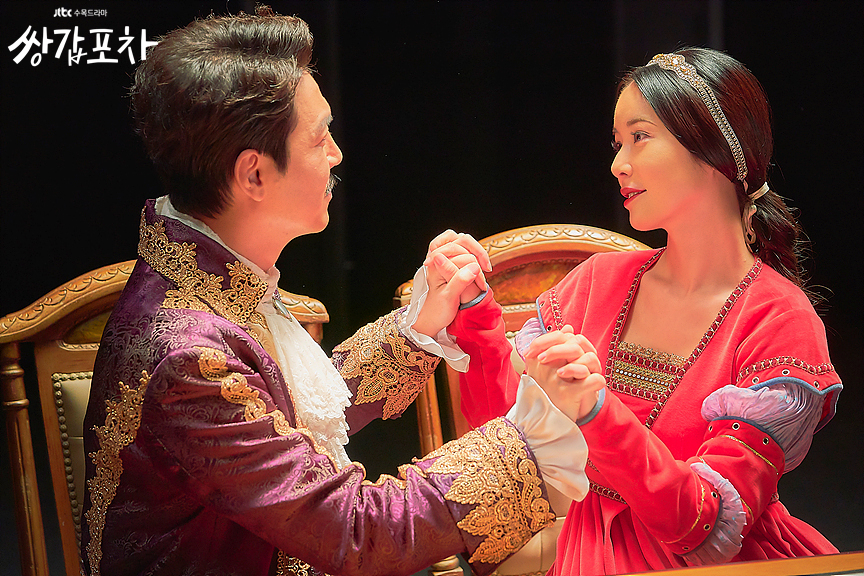
Karen: I have to agree that the start of the drama’s second half has finally managed to stabilise its story-within-a-story format and overall plot development. The episodic stories are far less over-the-top, making them more personal and relatable. Not only does such a change help a viewer like myself connect with these side characters with far less screen time, but these smaller episodes also cleverly incorporate important new information to drive the main storyline.
One particularly good example would be the Romeo and Juliet skit that plays out in episode 8. The dreamlike atmosphere of a stage play where Wol-ju, Manager Gwi, and Kang-bae take on various characters within a revised version of Shakespeare’s play is revealed to be part of a dead web novel writer’s work. Such a setting might seem exaggerated, but the drama overcomes this pitfall by grounding it within a simpler melancholic love story between the dead writer and her crush.
As usual, the pocha trio swoops in to untangle the grievances between the couple through an entertaining ride, with Manager Gwi and Wol-ju dying to find out the last chapter to the web novel, one left unpublished due to the writer’s untimely death. Amidst the mix of comedy and melancholy, this episodic story cleverly and subtly reveals Kang-bae’s newfound ability to see ghosts.
I had almost forgotten about this, and took it for granted when Kang-bae meets the writer’s ghost for the first time. Kang-bae runs to Wol-ju and Manager Gwi for help, and it is this new ability that opens the doors for future plot developments. Yeo-rin is revealed to be Kang-bae’s perfect other half due to her innate potential to repel spirits, and his sudden awakening is a stark reminder of Wol-ju’s promise to seal off his special skills — one that she comes to realise she is unable to.
As the stakes become greater and tensions intensify, with Kang-bae turning against Wol-ju and Manager Gwi for lying to him and with growing revelations about the past, having a sturdier grasp of narrative technique seems to indicate a positive outlook for the drama in its second half.
Qing: Related to the problem of Kang-bae’s widening spiritual vision is another tension driving the plot. Wol-ju’s decision to sacrifice her ticket to reincarnation — to give Kang-bae the chance for a normal life — is extremely vexing to Kang-bae and Manager Gwi. This development not only keeps viewers invested in the outcome of this sticky situation, but also weaves together the trio’s character arcs naturally.
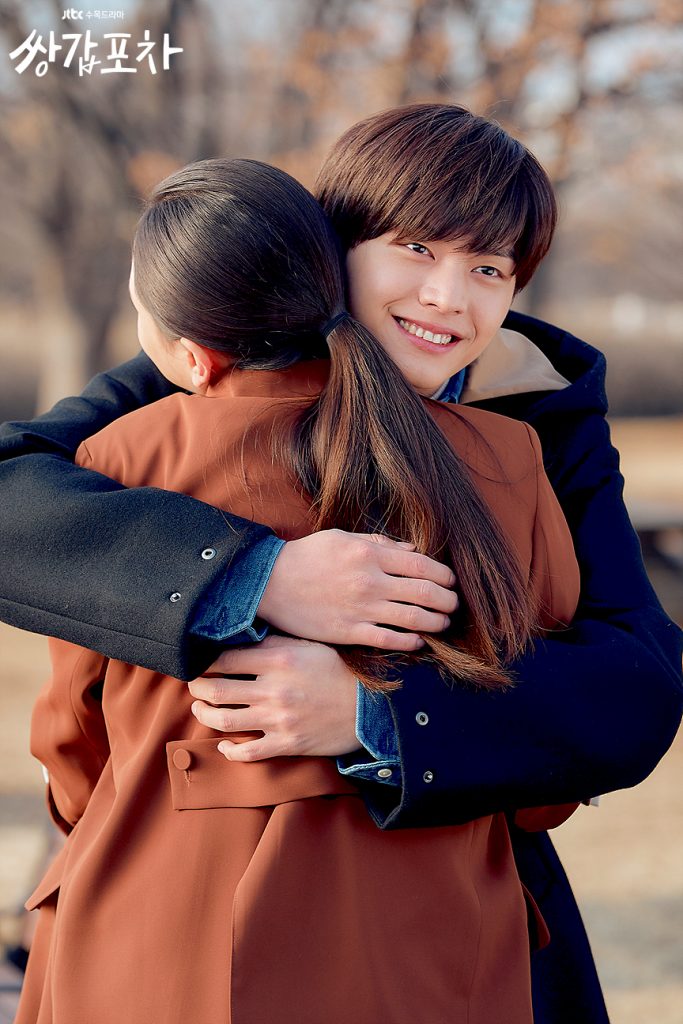
Speaking of character arcs, the main trio developed quite satisfyingly. We see Kang-bae, once isolated because of his unusual ability, put his powers to good use for troubled customers, find a family in Wol-ju and Manager Gwi, and even fall in love with an equally unusual, equally kind-hearted girl. Yeo-rin and Kang-bae’s relationship is a subtle take on the alpha-female/ beta-male pairing. Yeo-rin is physically strong, but she’s not a loud bully (as so many alpha-female characters tend to be portrayed); she’s also shy and endearing. Kang-bae is timid because of the problems social contact brings him, but he’s also bold when it comes to standing up for what he believes in. They express themselves honestly but not bluntly, and come through with a healthy, sweet relationship.
We also see growth in Manager Gwi: he transformed from a lovestruck, naive Crown Prince, who made promises he couldn’t keep, into a reliable and good-natured hun-nam. Rather than offering the heart-fluttering romance of his youth, his more mature presence gave Wol-ju the silent companionship and support she needed as she struggled to fulfill her quota. Wol-ju developed in the opposite direction: the trauma of her past turns her from a mature young girl into an impulsive person who masks her emotions with a bad temper. Manager Gwi and Wol-ju’s divergent growth arcs and contrasting perspectives on the customers’ stories provided interesting insight into how our experiences shape us and how we view the world.
Unfortunately, not all characters were well-developed. Mystic‘s failure to portray Won-hyung and Yeombujang as rounded characters is one of a few issues that the messy finale brought into sharp relief.
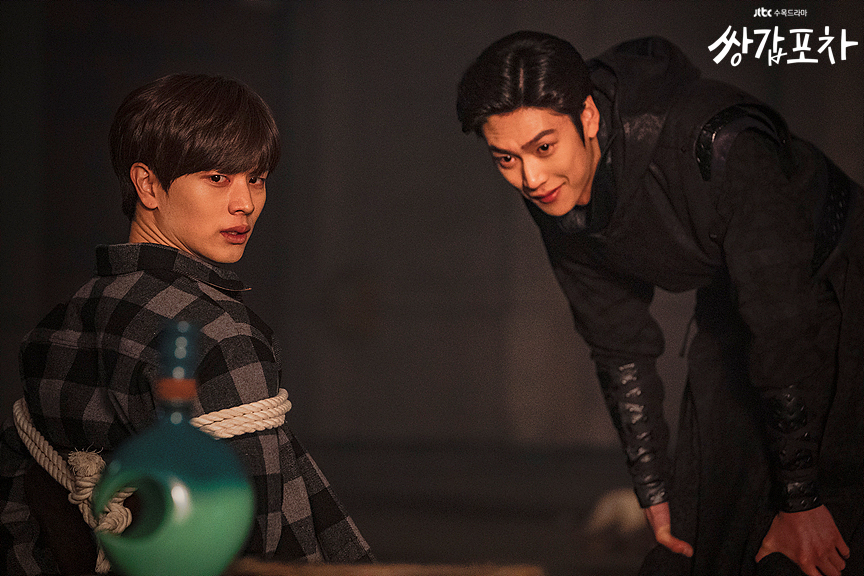
Karen: Yes, I was very pleased with the drama’s portrayal of the main pocha trio and Yeo-rin, spicing up conventional stereotypes. However, as you mentioned, the villains are treated far less thoroughly, making for a lacklustre climax and eventual collapse in the conclusion. The initial introduction of Won-hyung as Yeombujang’s son from their past lives made for a promising development, though time reveals that these two characters merely serve as devices with unclear motives; they exist solely for the sake of having an evil opposition.
The interaction between Won-hyung and Yeombujang falls victim to the drama’s persisting problem of telling rather than showing viewers how things develop, an opposite to the rule of “show not tell.” The initial heartwarming and trustworthy Yeombujang gives in easily to Won-hyung’s coercion and is erased from the storyline as Won-hyung possesses his body to further his vengeance against Wol-ju and Manager Gwi. I’m not given any solid visuals to make sense of and connect with such a progression, instead only being told in a brief conversation between the two that Yeombujang feels regret for being a poor father and wants to make amends to his son now.
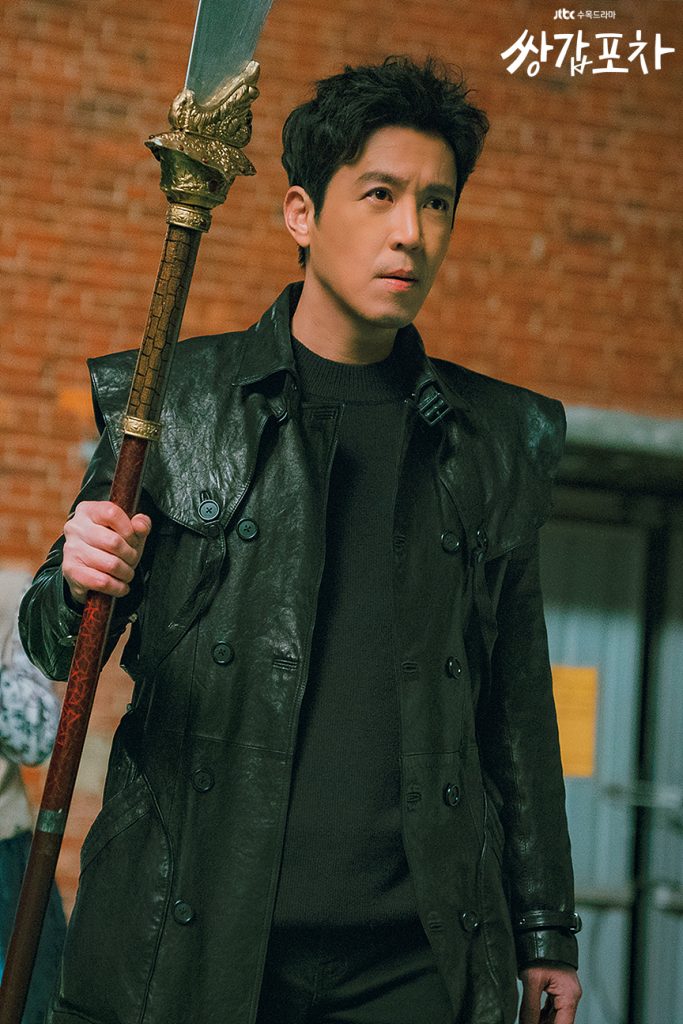
The story became even more confusing for me as I was unsure of Won-hyung’s motives. The drama shows fragments of the past across the final few episodes, but they were oftentimes insufficient to make sturdy inferences about the character’s intentions. It seemed at first that Won-hyung had a grudge against the Crown Prince/Manager Gwi, but many times he proceeded to attack Wol-ju and seems to hold a strong hatred against her as well. The past is only fully revealed in the final episode, so I was bewildered as to why Won-hyung would direct so much anger against Wol-ju, which he is seen to be on friendly terms with in the visions of the past.
There are more points that compromised the drama’s composition, such as the Crown Prince’s mother, now reincarnated, who comes in search of Manager Gwi and Wol-ju to apologise for the actions in her past life. She becomes yet another flattened character who quickly dies in service of Won-hyung revenge storyline. Inconsistencies scatter throughout the presentation, beginning as minor distractions that in turn grow to crack the overall plot development.
Some of them include Wol-ju and Manager Gwi aging after their time in hell, but Yeombujang and Won-hyung look exactly the same (probably for easy connection between storylines). The drama does not give any precise reasons as to why this occurs, which could have been left unanswered so long as the treatment was consistent across characters. Yet, this inconsistency made me wonder if the aging of Wol-ju and Manager Gwi was to facilitate the plot of having them not recognise each other and eventually reunite. Such presentation choices makes me wonder about the attention given to world-building and majorly distracts me from full immersion into the drama’s storyscape.
Qing: As you noted, the failure to portray a rounded villain, upon whom much of the story’s climax depends, was one reason the ending fell flat. Aside from this, two flaws that appeared in early episodes came back in full force: the genre roulette problem, and the inconsistent fantasy rules.
When it comes to Wol-ju serving out her penance and the problem of sealing Kang-bae’s spiritual vision, Mystic had primed us by introducing the theme of sacrifice, so it’s no surprise that the resolution incorporates this theme: Manager Gwi dies while blocking Wol-ju from Won-hyung’s attack, and Wol-ju falls into the pit of Kang-bae’s unconsciousness while protecting him from Won-hyung.
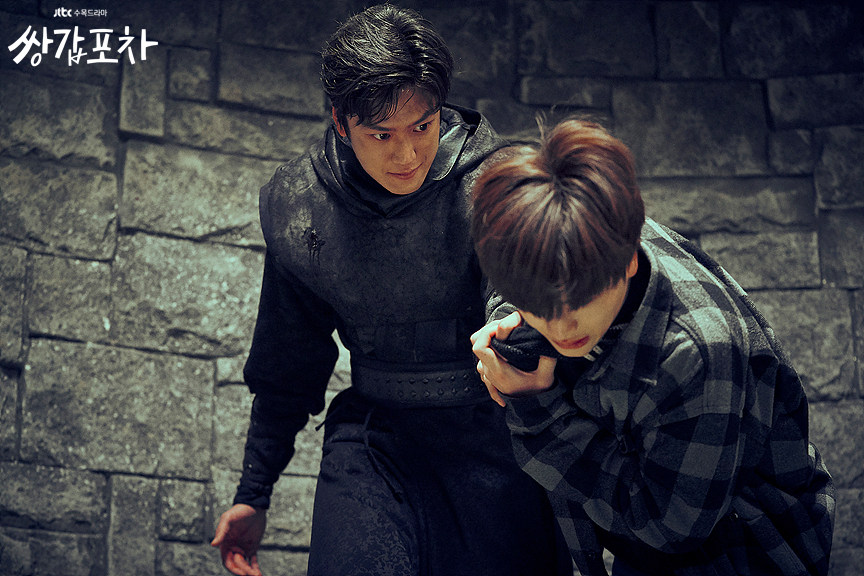
However, this dramatic scene was executed so jarringly that it failed to achieve the emotional heft it intended. Firstly, it bent some of the storyworld’s rules introduced earlier. In episode 2, Wol-ju warned Kang-bae that if he fell into the pit of someone’s unconsciousness, his soul would disappear. However, Won-hyung and Wol-ju were unscathed when the Afterlife rescuers located them. Mystic never explained if this rule was exclusive to humans, and this happy outcome seemed very much a product of deus ex machina.
Other inconsistencies include Kang-bae’s powers as the reincarnation of the Sacred Tree. He displays supernatural strength, sufficient to subdue Won-hyung when he strangles Wol-ju and even expels his spirit from Yeombujang. However, these powers never surface the whole time Won-hyung kidnaps him, knocks him out with Wol-ju’s liquor, and attacks Wol-ju and Manager Gwi. Left unexplained, we can only conclude that these powers were conveniently forgotten so that Wol-ju and Manager Gwi could carry out their acts of ultimate sacrifice to prove their love. The illogicality of it all was not just distracting; it was outright disruptive.
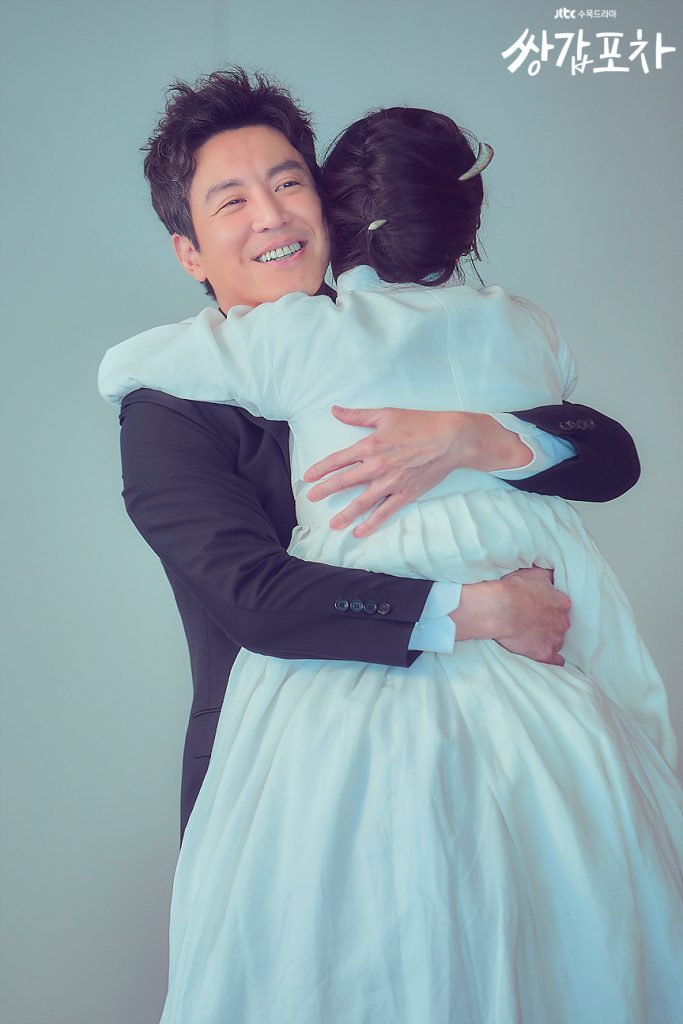
Making things worse is the sense that Mystic tried to overreach for other genres. Instead of presenting a climactic scene in line with its unique, charming slice of life meets lite fantasy genre, it orchestrated the confrontation as something out of a fantasy blockbuster film. Manager Gwi and Wol-ju’s sacrifices were designed for a grand, tragic effect that didn’t align with the show’s overall tone. The reveal that their deaths had been fake-outs proves the stakes weren’t actually that high, undercutting the gravity of the scene. The hasty reversion to a light-hearted mood further makes the climax appear ostentatious and fabricated. Put together, it was hard to feel emotionally invested in the turn of events.
Mystic started off questionably, and despite finding firmer footing in the middle stretch, was ultimately dragged down again by its genre-fickle-mindedness and inconsistent storyworld rules. It had its heartwarming and funny moments, so I wouldn’t say it was a complete waste of time. But if you’re looking for a humanistic fantasy about grappling with long-held regrets, just invest a few more hours and watch Hotel Del Luna.
(YouTube. Images via JTBC.)


